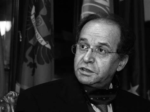WASHINGTON, Jan 20 (Reuters) – Donald Trump wasted no time implementing his agenda after being sworn in as president on Monday, issuing pardons to approximately 1,500 supporters convicted in connection with the January 6, 2021, attack on the U.S. Capitol. The controversial move comes as part of a broader effort to impose his policies and reassert his vision for the nation.
Capitol Pardons Spark Outrage
The mass pardons include 14 leaders of far-right groups, such as the Oath Keepers and Proud Boys, whose convictions remain intact despite their early release. This decision has drawn sharp criticism from lawmakers, police officers, and victims of the Capitol attack, which saw 140 officers assaulted and resulted in multiple deaths.
Trump justified the pardons, portraying them as a gesture of reconciliation, though critics see them as a polarizing start to his new administration.
Executive Actions on Day One
Within hours of taking office, Trump signed a flurry of executive orders:
- Immigration Crackdown: The U.S.-Mexico border was declared a national emergency, halting programs that allowed legal entry for migrants. Refugee resettlement programs, including those for Afghan allies, were suspended.
- Environmental Rollbacks: The United States withdrew from the Paris Climate Agreement for the second time in a decade, reversing global climate initiatives championed under President Biden.
- Gender and Diversity Policy Changes: Federal diversity programs were scrapped, and policies recognizing genders beyond birth assignment were rescinded.
Other actions included freezing federal hiring, dismantling Biden-era electric vehicle initiatives, and creating a “Department of Government Efficiency,” headed by billionaire Elon Musk.
A Divisive Return to Power
Trump, 78, took the oath of office in the Capitol Rotunda, the very site where his supporters rioted four years prior in an attempt to overturn his 2020 loss. In his inaugural address, Trump framed his presidency as a divine mission to restore American greatness, declaring, “I was saved by God to make America great again.”
His return is historic: Trump is the first president to win a second term after losing reelection, the oldest president ever inaugurated, and the first convicted felon to hold the office.
Tensions at the Inauguration
Former Presidents Biden, Obama, Bush, and Clinton attended the ceremony alongside Vice President Kamala Harris. Trump’s remarks took sharp aim at Biden’s presidency, accusing his predecessor of prioritizing foreign borders over American interests.
Prominent tech leaders, including Elon Musk, Jeff Bezos, and Mark Zuckerberg, were seated prominently, signaling Trump’s ties to influential business figures. Musk, who has championed space exploration, raised his fists in approval when Trump announced plans to send astronauts to Mars.
Controversial Foreign Policy Proposals
Trump reiterated his intention to rename the Gulf of Mexico as the “Gulf of America” and reclaim control of the Panama Canal, provoking concern among U.S. allies.
Closing a Bitter Chapter
Before leaving office, Biden issued several pardons, including for General Mark Milley, whom Trump had accused of treason. Biden also pardoned members of his family, citing fears of retaliation under the new administration.
As Trump begins his unprecedented second term, the nation braces for a presidency that promises dramatic shifts domestically and globally.







